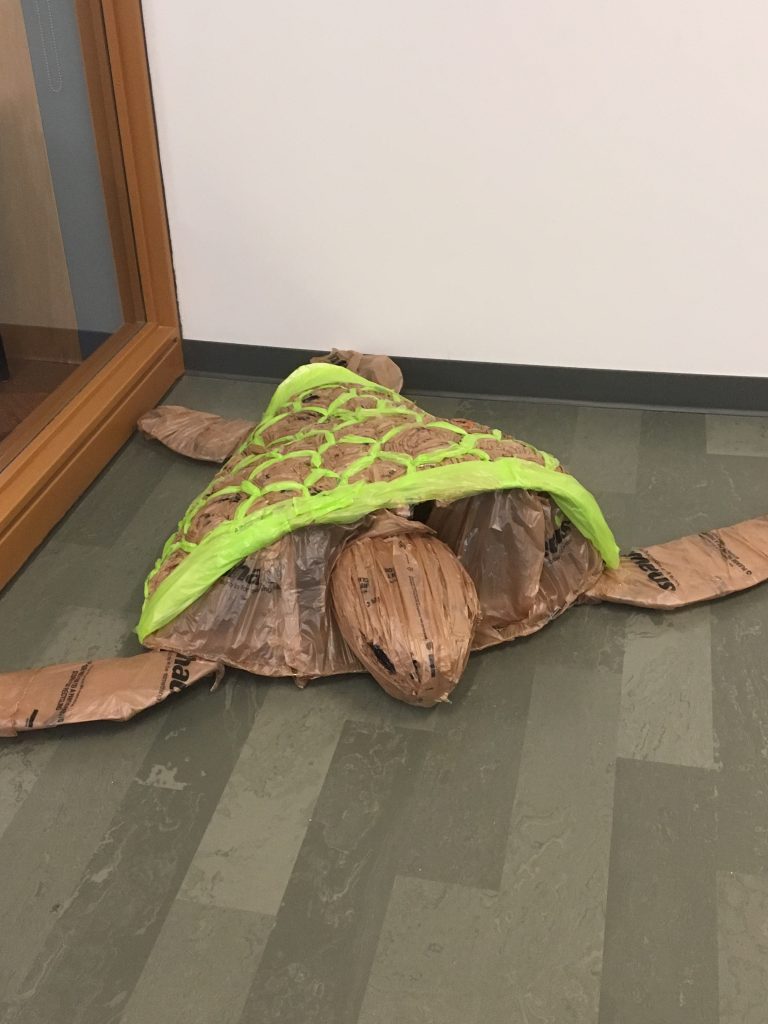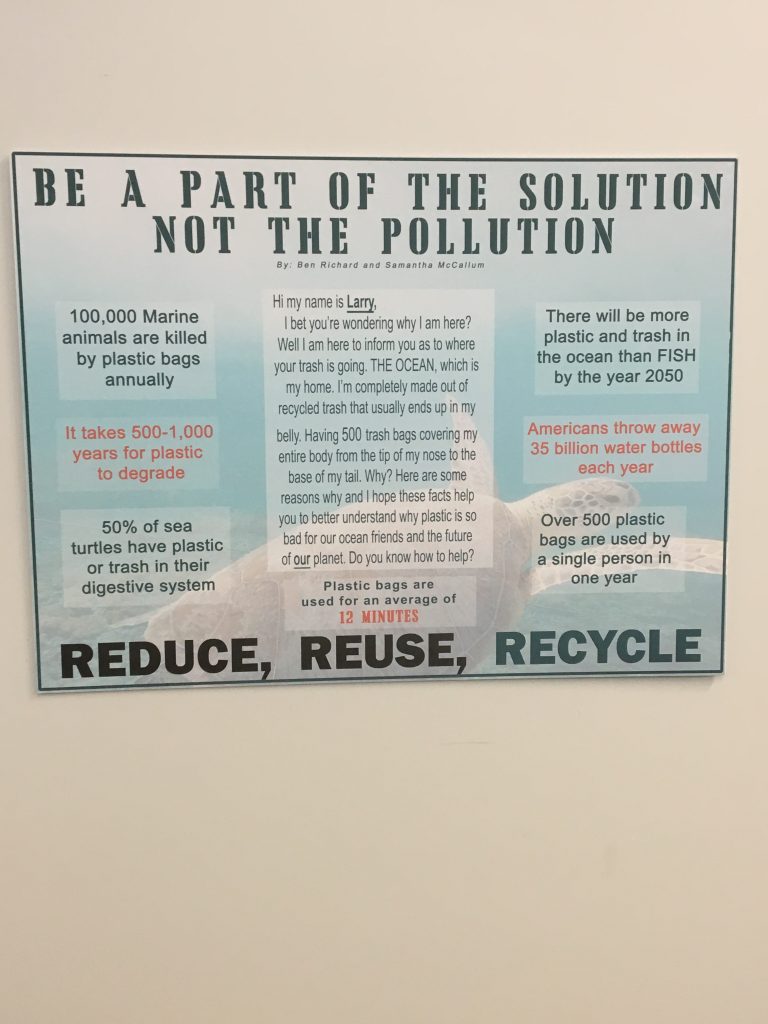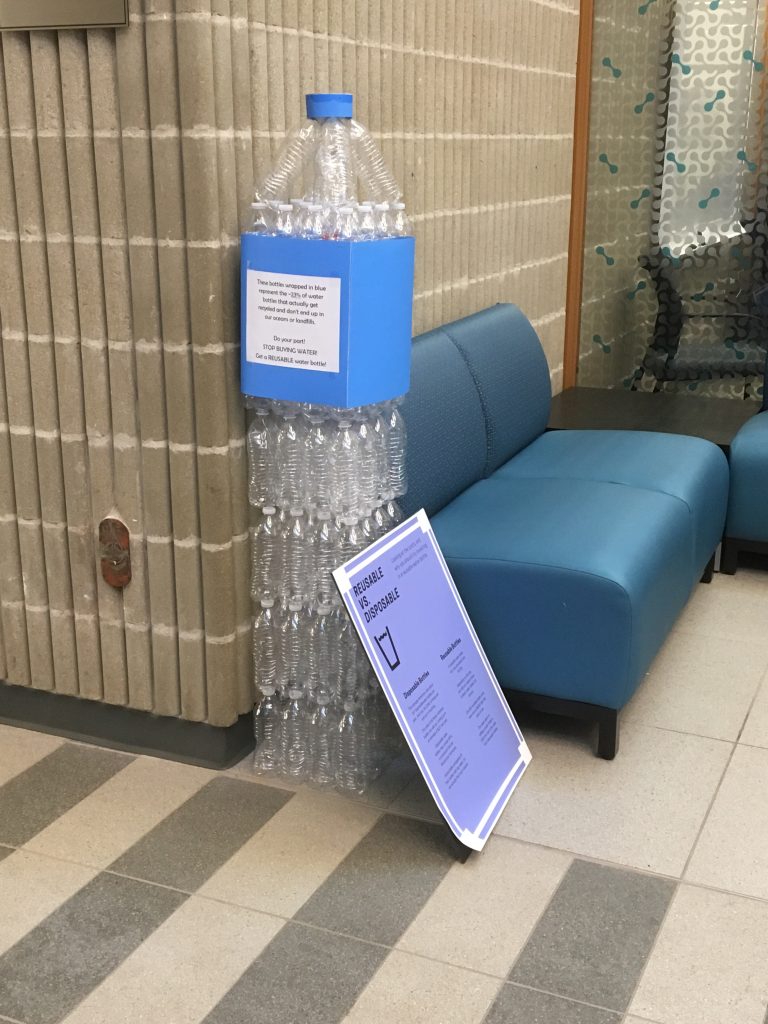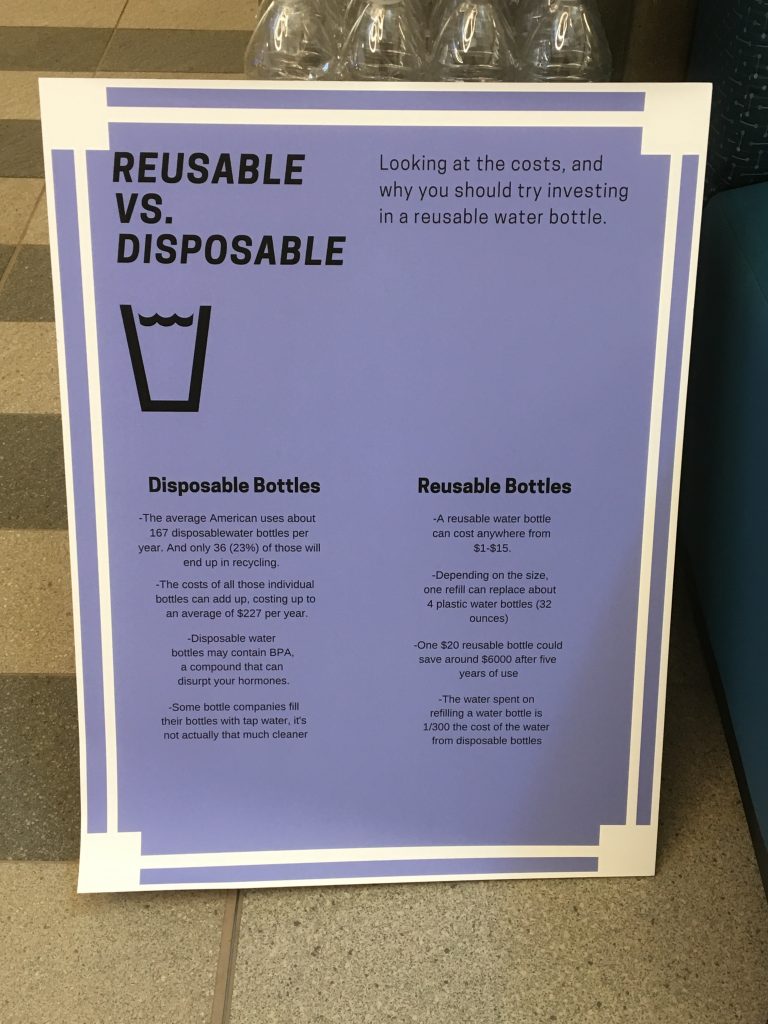By Cassie Roy | Observer Contributor

Photos by Thomas Hill Jr.

Photo by Thomas Hill Jr.
Plastic- we all know it, we all use it, we all buy it, but that’s the problem.
According to plastic-pollution.org, over 8.3 billion tons of plastic resides on our Earth. A study conducted in 2013 showed that an average of approximately 299 million tons of plastic gets produced and added onto the growing pile of waste each year. That same study estimated that by 2025 we would be able to line one hundred plastic bags per foot along every coastline on Earth. That’s about 372,000 miles of land covered in waste that will take over five hundred years to be broken down and recycled back into the Earth.

This wouldn’t sound so bad, at least the plastic disappears eventually right? Well, when plastic decays into our soil it releases the chemicals that were used to make it. This includes polystyrene, bisphenol A (BPA) and PS oligomer. All of these toxins are consumed or absorbed by animals causing them severe harm.

Despite the harmful effects, we all rely on plastic. Whether it’s for hair product bottles, food packaging, to-go containers, straws, or water bottles, plastic is a heavily used commodity. But the plastic has to go somewhere when we are done with it.
We need to make a change and it starts with you. By switching to metal or glass products, not using straws, or buying your everyday products in non-plastic wrappings or recycled materials, the effects of change will soon take shape. Now, I understand if this all sounds intimidating or insurmountable. Don’t let that deter you – no matter how small your contribution is it will make a difference and eventually it will become the norm.
Professors Heather Conn and Tom Montagno are doing their part to make a difference. They plan to sign our school up for a nationwide competition called “Recycle Mania” this March. The event will recognize schools in different categories that work to reduce their single-use plastics on campus. According to Heather Conn, their goal in entering the contest is to “raise awareness and really drive our school towards increasing recycling and even decreasing single-use plastic altogether.”
Conn has also been working to raise awareness of single-use plastics and healthy recycling habits amongst the staff who work at MWCC as well. She attends a potluck once a month for division meetings where they were using plastic utensils. Conn decided to bring in her old silverware from college and when the event was over she brought it home with her and washed it.
Conn says, “I’m just trying to make the faculty aware of what can be recycled, what can’t be recycled and trying to get them to be better about recycling.”
Thanks to the graphic design department we will soon have posters above the recycling bins depicting what can and cannot be recycled. This will not only raise awareness to promote good recycling habits but it will also be a constant reminder to be aware of what we throw into those bins.
Plastic is found in large quantities in oceans and on land on such a regular basis that “our animals are becoming plasticized; they eat plastic, they ingest plastic,” said Conn. “The food that you eat, especially fish, contains plastic, so you ingest, I believe, over 10,000 bits of plastic over the course of a year,” Conn added.
We see how big this problem has become when larger animals such as whales wash up on our shores and we discover that their stomachs are filled with plastic.
Listed below are few sites that offer inexpensive plastic-free packaging and products made from recycled materials. The majority of these websites are also small family companies here in the U.S. who are trying to make a difference in the world.
Just remember to be conscientious of the products you are using that contain plastic. Reduce, reuse, and recycle – it really is as simple as that.
Comments are closed.